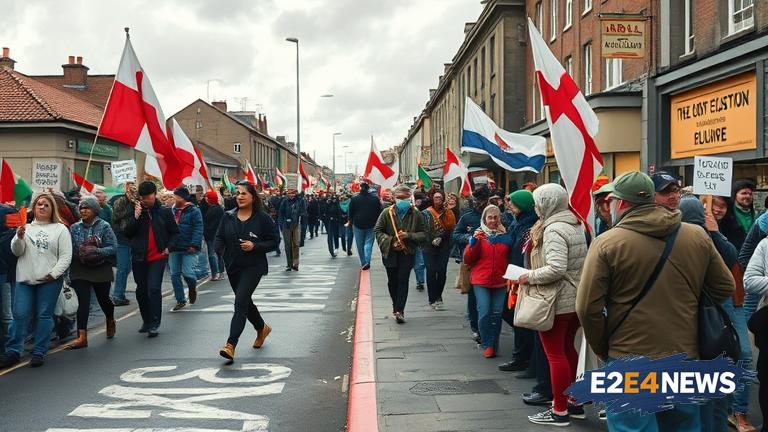The recent surge in anti-migrant rhetoric in Northern Ireland has been linked to the region’s deep-seated sectarian divide. Historically, the divide between unionists and nationalists has been a major obstacle to social cohesion. The arrival of migrants has further complicated the situation, with some individuals exploiting the issue to fuel tensions. Politicians and community leaders have been accused of using anti-migrant rhetoric to garner support and distract from other pressing issues. The consequences of this rhetoric have been severe, with migrants facing increased hostility and violence. Many have reported feeling unwelcome and isolated, leading to a decline in their mental health and well-being. The situation has been exacerbated by the lack of effective integration policies, leaving migrants to navigate a complex and often hostile environment. Furthermore, the legacy of the Troubles continues to cast a shadow over the region, making it challenging to address the root causes of sectarianism. Efforts to promote tolerance and understanding have been hindered by the persistence of segregation and the lack of meaningful engagement between communities. Despite these challenges, there are signs of hope, with many individuals and organizations working tirelessly to promote integration and challenge anti-migrant sentiment. Community groups have been established to provide support and advocacy for migrants, while some politicians have spoken out against the rhetoric of intolerance. However, more needs to be done to address the systemic issues that are driving anti-migrant sentiment. The UK government has been criticized for its handling of the issue, with some arguing that its policies have exacerbated the problem. In response, there have been calls for a more nuanced approach to migration, one that takes into account the complex social and economic dynamics of the region. Ultimately, addressing the sectarian divide and promoting integration will require a sustained effort from all stakeholders, including politicians, community leaders, and ordinary citizens. By working together, it is possible to create a more inclusive and welcoming society, one that values diversity and promotes social cohesion. The situation in Northern Ireland serves as a reminder of the importance of addressing the root causes of sectarianism and promoting tolerance and understanding. It also highlights the need for effective integration policies and the importance of community-led initiatives in promoting social cohesion.
